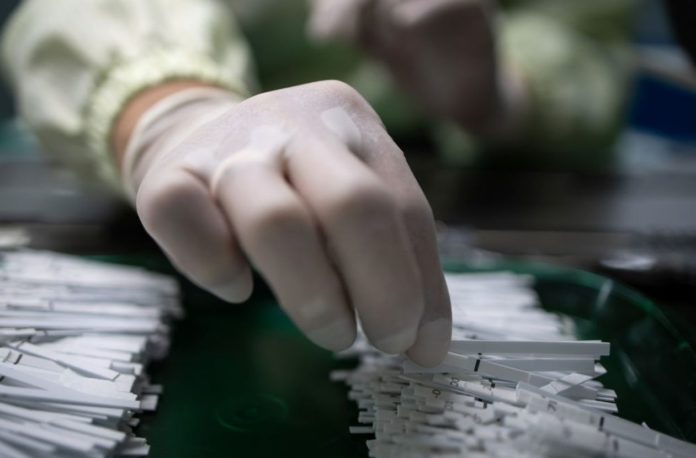Carolina scientists develop a COVID-19 fast sensing test to solve the problem of tracking mutations and global disease containment.
Even experts who keep track of every new finding on the coronavirus and its variants may be unaware of the virus’s sugar cravings.
Researchers at the University of North Carolina in Chapel Hill and the University of California, San Diego use the virus’s sweet tooth to create a sugar-coated COVID-19 test strip that is effective at detecting all known coronavirus strains, including Delta.
In the coming weeks, researchers will see if the GlycoGrip self-test can also detect infections caused by the Omicron variety, according to Carolina researcher Ronit Freeman.
“We have turned the tables on the virus by using the same sugar coat it binds to infect cells – to capture it into our sensor,” says Freeman.
Responding to the virus’s mutations and developing strains has been one of the most difficult aspects of the current COVID-19 outbreak. For new tweaks in the virus’ genetic code, new tests must be created.
GlycoGrip, on the other hand, provides a solution for universal coronavirus testing.
“We are optimistic that GlycoGrip will capture future variants just as easily,” Freeman adds.
The test is based on the natural biology of epithelial cells, which are targeted and penetrated by the virus that causes COVID-19. The glycocalyx is a dense matrix of sugars that coats these cells, and it is this sugar net that the virus uses to infect them.
The idea is simple: a droplet of virus-containing biofluid, such as saliva, is put on one end of the strip and flows along its surface. When the fluid hits a sugar-coated patch, the virus can’t help but indulge its sweet tooth, causing it to become imprisoned on that particular spot.
This capture is then detected by antibodies that have been coated with gold nanoparticles, which produce a visible hue that signifies infection.
“We tapped into nature to reimagine viral diagnostics,” adds the study author.
Freeman collaborated with Rommie Amaro, professor of chemistry and biochemistry at the University of California, San Diego, and co-corresponding paper author, to better understand how these sugar polymers bind the virus.
Amaro and her colleagues created computationally complex simulations that helped explain how and why the cell-anchored sugars bind the viral spikes.
“By using atomic-level views of the spike protein, we were able to identify key binding sites for the glycocalyx sugar polymers and unlock how these sugars adapt to different spike conformations,” adds Amaro.
“This is exciting, we essentially revealed another secret of how spike binds cells to facilitate infection.”
A patent has been submitted for this novel technology, and the team envisions a future in which GlycoGrip can provide cheap and reliable testing for a wide spectrum of viruses.
Source: 10.1021/acscentsci.1c01080
Image Credit: Getty
You were reading: New sugar-coated COVID-19 test strip can detect variants, study shows
